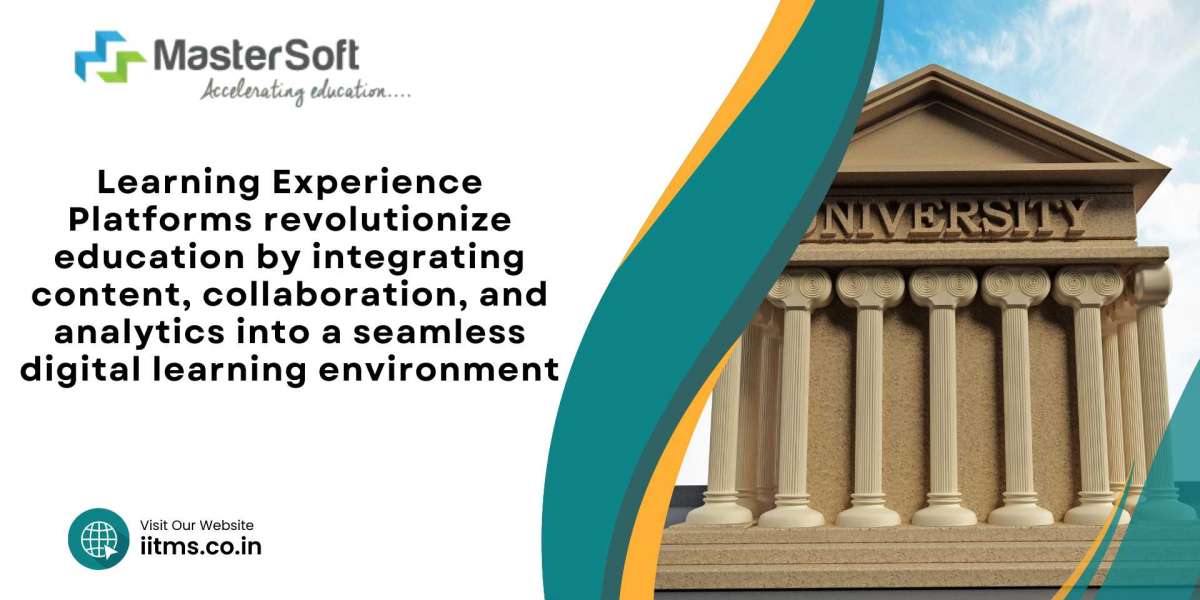The landscape of education and training is undergoing a rapid transformation, driven by technological advancements and evolving learner expectations. At the forefront of this revolution is the Learning Experience Platform LXP a cutting-edge solution designed to personalize, engage, and optimize the learning journey. Let's delve into the world of LXPs, exploring their features, benefits, and the impact they can have on organizations and learners.
Understanding Learning Experience Platforms: More Than Just an LMS
While Learning Management Systems (LMS) focus primarily on course delivery and administration, Learning Experience Platforms take a more holistic approach. LXPs go beyond content management to create personalized and engaging learning experiences. By leveraging advanced technologies, LXPs offer a range of features that cater to the diverse needs of learners and organizations.
Core Components of a Learning Experience Platform
An LXP comprises several key components that work together to deliver an exceptional learning experience:
- Content Aggregation: LXPs can integrate content from various sources, including internal repositories, external providers, and user-generated content.
- Personalized Learning: By analyzing learner data and preferences, LXPs can deliver tailored content and recommendations.
- Social Learning: LXPs foster collaboration and knowledge sharing through social features like forums, groups, and user profiles.
- Analytics and Insights: Robust analytics tools provide valuable data on learner behavior, content effectiveness, and program performance.
- Mobile Optimization: LXPs are designed to be accessible on various devices, enabling learners to access content and engage in learning activities anytime, anywhere.
The Benefits of Implementing a Learning Experience Platform
Organizations that adopt LXPs can reap numerous benefits:
- Enhanced Learner Engagement: Personalized learning experiences and interactive content boost learner motivation and engagement.
- Improved Knowledge Retention: By providing opportunities for practice and application, LXPs enhance knowledge retention and transfer.
- Increased Productivity: Efficient content discovery and access, along with personalized learning paths, can boost employee productivity.
- Data-Driven Decision Making: Comprehensive analytics provide valuable insights for optimizing learning programs and measuring ROI.
- Future-Proof Learning: LXPs are adaptable to emerging technologies and learning trends, ensuring organizations stay ahead of the curve.
Overcoming Challenges: Implementing a Successful LXP
Implementing an LXP can be challenging, but with careful planning and execution, organizations can overcome obstacles and achieve their learning goals:
- Change Management: Effectively communicating the benefits of the LXP and providing adequate training to employees is crucial.
- Data Privacy and Security: Protecting learner data is paramount. Organizations must ensure robust security measures are in place.
- Integration with Existing Systems: Seamless integration with HR systems, performance management tools, and other enterprise applications is essential.
- Content Development: Creating engaging and relevant content is key to the success of an LXP.
- Measuring ROI: Defining clear metrics and tracking the impact of the LXP on business outcomes is essential for demonstrating its value.
The Future of Learning: LXPs as a Catalyst for Transformation
LXPs are transforming the way organizations approach learning and development. As technology continues to advance, we can expect even more innovative features and capabilities to emerge. From virtual and augmented reality experiences to artificial intelligence-powered personalized learning, the future of LXPs holds immense potential.
By embracing LXPs, organizations can create a culture of continuous learning, empower employees, and drive business success.
Choosing the Right LXP: Key Considerations
Selecting the appropriate LXP is crucial for realizing its full potential. Key factors to consider include:
- Scalability: The LXP should be able to accommodate the organization's growth and changing needs.
- Integration Capabilities: The LXP should seamlessly integrate with existing systems and tools.
- User Experience: A user-friendly interface is essential for both learners and administrators.
- Analytics and Reporting: Robust analytics capabilities provide valuable insights into learning effectiveness.
- Cost: Evaluate the total cost of ownership, including licensing, implementation, and ongoing maintenance.
Measuring the Impact of LXPs: Key Metrics
To assess the effectiveness of an LXP, organizations should track key metrics such as:
- Learner engagement and satisfaction
- Time to proficiency
- Knowledge retention
- Return on investment (ROI)
- Completion rates
By carefully monitoring these metrics, organizations can measure the impact of the LXP on learning outcomes and make data-driven decisions to optimize its effectiveness.
Conclusion: LXPs - The Future of Learning
Learning Experience Platforms represent a significant advancement in the field of learning and development. By providing personalized, engaging, and effective learning experiences, LXPs are empowering organizations to achieve their strategic goals. As technology continues to evolve, we can expect LXPs to play an even more critical role in shaping the future of work and learning.








